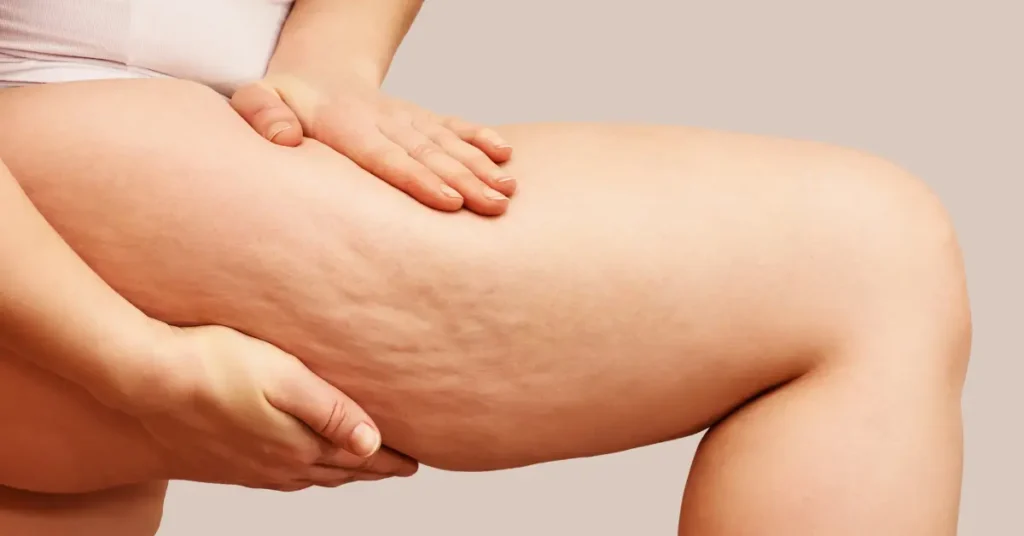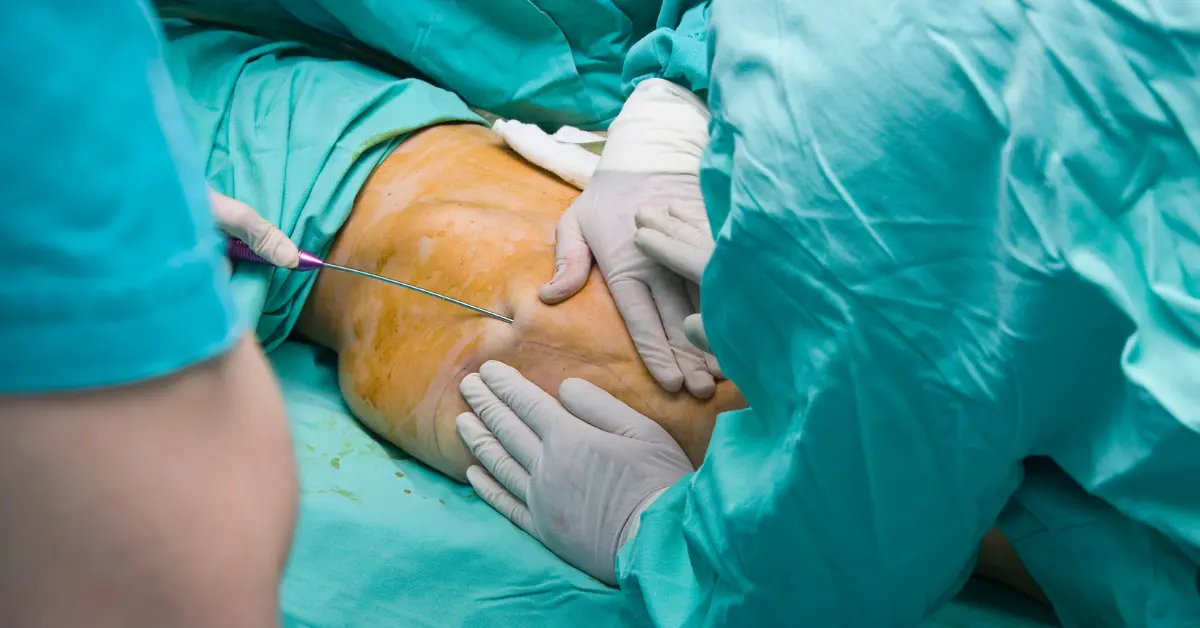You can. But make sure you are the ideal candidate and know about the possible risks and side effects.
As per studies, 11% of women (adults) worldwide are afflicted by the painful and crippling illness known as lipedema. Lipedema, which is characterized by an abnormal buildup of fat in the legs and hips, can be extremely uncomfortable. It restricts mobility and has a substantial negative impact on quality of life.
With developments in medical technology, the issue of lipedema can be successfully treated with personalized liposuction treatment plans.
In this article, we will discuss lipo for lipedema (as a treatment), who is an ideal candidate for lipedema liposuction, preparing for the surgery, risks and side effects of the procedure, and how to take care of yourself after the completion of the surgery.
Understanding Lipedema
Lipedema is a chronic condition that mostly affects women and involves the unnatural accumulation of fat cells, especially in the lower body (hips, buttocks, and thighs).

It is characterized by an abnormal buildup of subcutaneous adipose tissue, which causes asymmetrical swelling and pain. This condition is frequently misdiagnosed or confused with lymphedema or obesity.
Even though the exact cause of this condition is not known, it is believed that people mostly inherit this condition. Doctors treat this issue by combining compression therapy with diet adjustments. In some instances, they recommend lipo for lipedema.
Lipo For Lipedema (as a treatment)
Liposuction for lipedema is a good option as it reduces discomfort and mobility problems by removing the extra fat that builds up in the affected areas.
As mentioned above, to get the best long-term results, liposuction should be a part of a whole treatment plan involving lifestyle changes, compression therapy, and physical therapy. Though lipo helps in reducing the pain, it is not a miracle cure for lipedema.
Furthermore, the surgery must only be done by a skilled and experienced surgeon. He/She should have knowledge about the particular difficulties in treating lipedema.
Who Is An Ideal Candidate For Lipedema Liposuction?
Women who have had lipedema diagnosed by a skilled medical professional are often candidates for lipedema liposuction. They may have significant amounts of body fat (arms and/or legs) that they haven’t been able to lose with either diet or exercise.
You might also be a good candidate for lipedema liposuction if you meet the following criteria:
- You have a stable weight and are devoted to maintaining a healthy lifestyle even after the procedure.
- Also, you are in good general health and do not have any severe medical issues that would elevate the risks associated with the surgery.
- Moreover, you have tried non-surgical treatments like compression therapy or manual lymphatic drainage but couldn’t get a significant improvement.
- Finally, you have realistic expectations. You should understand that liposuction is not a substitute for a healthy lifestyle and weight loss.
If you are thinking about lipo for lipedema, you should get advice from a liposuction expert or surgeon and evaluate your unique situation to decide whether you are a good prospect.
How To Prepare For Lipo for Lipedema?
Depending on the patient’s situation, the exact preparation procedures for liposuction may vary. Although, some general pointers are:
- Speak with a skilled liposuction expert: Research and find a board-certified plastic surgeon who has performed liposuction in the past. He/She will check your general health and determine where your body stores fat. The surgeon will talk with you about your expectations and procedure objectives.
- Stick to the surgeon’s instructions: Your surgeon will give you detailed instructions on what to do before lipo for lipedema, including warnings to avoid specific medications and supplements, to stop smoking, and to modify your diet and exercise regimen.
- Invest in any necessary goods: You need to invest in compression clothing, analgesics, and wound care items, to get ready for recuperation. Additionally, you need to take a leave from work and reduce your physical activity.
- Make transportation arrangements: You’ll need someone to drive you home following the operation and might require them to stay with you for a short while.
- Keep up a healthy lifestyle: Liposuction is a body-contouring technique rather than a weight-loss technique. A healthy diet and regular exercise can help to ensure the best outcomes and reduce the risk of problems.
Risks And Side Effects Associated With Lipedema Liposuction
Just like any other surgical procedure, lipo for lipedema has risks and potential adverse effects. These can be swelling, numbness, bruising, infection, scarring, skin abnormalities, and prolonged healing.
Furthermore, you might also face blood clots and negative anesthetic reactions. Hence, before making a choice, it’s vital to discuss these possible side effects and make sure whether liposuction work for you?
Recovery And Aftercare
To ensure a quick and complete recovery, it’s necessary to adhere to the surgeon’s aftercare recommendations.
- After the procedure of lipo for lipedema, patients often need to rest and refrain from performing strenuous activities for a few weeks.
- You might also require compression clothing to support the healing process and help with edema reduction.
- In order to avoid the recurrence of lipedema symptoms after the healing period, it’s vital to maintain a healthy lifestyle. It includes consuming a balanced diet and doing frequent exercise.
- You need to attend follow-up sessions with your surgeon to track the progress and address any other problems.
- Other treatments, such as lymphatic massage (which helps reduce swelling and enhance circulation in troubled areas), may also benefit certain people.
A healthcare professional can only decide the best aftercare approach for each patient’s specific requirements. Hence, never hesitate to visit your doctor!
Choose A Qualified Liposuction Surgeon
While selecting a liposuction expert, keep the following things in mind:
- Credentials and training: Look out for a surgeon who has completed specific lipedema liposuction training and is board-certified in plastic or reconstructive surgery.
- Technology and techniques: The surgeon should know how to perform lipedema liposuction using the most up-to-date techniques, such as tumescent liposuction or power-assisted lipo.
- Experience: He/She should have extensive knowledge of lipedema liposuction techniques. Thus, make it a point to check out their past performance, client testimonials, and before-and-after pictures.
- Appointment: Ensure the surgeon thoroughly explains the procedure, including any risks or potential side effects, as well as the expected results, during your consultation.
In A Nutshell
Lipo is an excellent method to treat lipedema in order to eliminate the excess fat from your legs and arms. Yet, the hard truth is that it is not a weight loss procedure and it does not have a fit-for-all-approach. Therefore, you should consult a surgeon before considering liposuction for lipedema.
FAQs
A: The cost of lipo for lipedema ranges from $6,200 – $25,000. In fact, it depends on certain factors. They are the target areas, the complexity of the surgery, and surgeon’s expertise. Though, on average, it costs roughly $13,300.
A: Actually, it depends on what insurance plan you have. Hence, you should discuss with your insurance service provider to calculate the coverage before undergoing lipo for lipedema.
A: The results of lipedema liposuction are long-lasting. Nonetheless, it is essential to maintain a healthy lifestyle to ensure that the fat does not return.
After the procedure, you can expect noteworthy improvements in the appearance of your thighs, legs, and buttocks.









